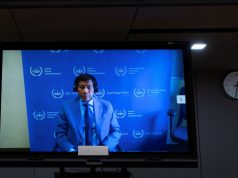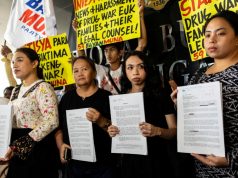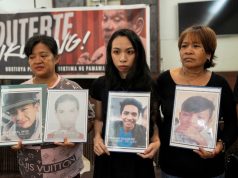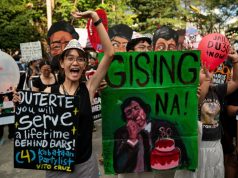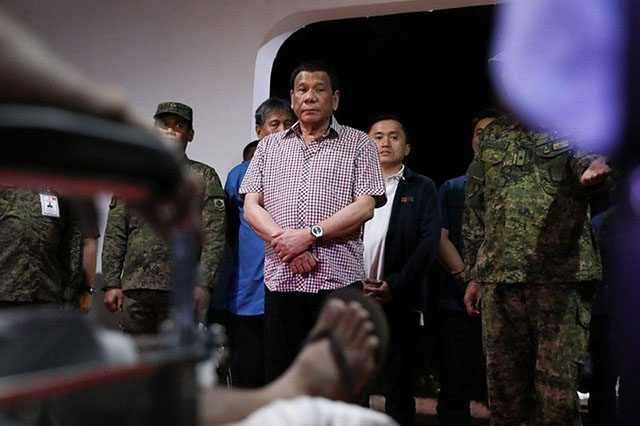
President Rodrigo Duterte said on Tuesday twin explosions that killed 20 people in a church on a southern island at the weekend may have been a suicide attack, citing a briefing given to him by military commanders.
Duterte’s comments run counter to statements by military and police officials on Tuesday, who said the bombs inside and outside of the church in Jolo appeared to have been detonated remotely. Security camera footage of suspects believed to have planted the bombs has been shown to media.
If confirmed, it would be one of the first known cases of a suicide attack in the Philippines and would be consistent with details of a claim of responsibility by Islamic State via its Amaq news agency early on Monday.
“It exploded. That is terrorism and suicide. You cannot carry plastic bags, you will be questioned by the military, police when you have backpack,” Duterte said when asked by reporters to clarify an earlier remark.
He added: “But you could see all around bits and pieces of flesh. We even stepped on it.”
Asked separately about Duterte’s comment, Defence Secretary Delfin Lorenzana said it was possible the second blast “may have been a suicide bomber”.
“The first bomb that exploded inside the church was apparently left behind by a certain woman,” he said.
“The second bomb that exploded at the entrance about a minute and a half after, may have been a suicide bomber as indicated by body parts strewn all over,” Lorenzana said.
The bombings came six days after a referendum on autonomy for the mainly Muslim region returned an overwhelming “yes” vote.
More than 100 people were wounded along with the 20 killed in Jolo in what was one of the deadliest attacks in recent years in a region long plagued by instability.
Islamic State said last year it was behind what it called a suicide bombing, when a device was detonated by the driver of a van when he was stopped at an remote checkpoint in Basilan. It killed 11 people.
The driver was believed to be a foreigner, and may have triggered the device prematurely, according to security officials, who say the intended target was likely a more populated area.
Duterte said he was certain the militant Abu Sayyaf group was responsible for the church attack and that it was possible, though not certain, that one of the bombers was Indonesian.
He appeared to have some doubts about the mode of the attack, based on the information from a briefing he said he had received at 3 a.m. on Tuesday.
“If not suicide bomber, what? By cellphone? Yes, that is a possibility. But the eyewitnesses said it was the other way around. There could have been a companion, a support system,” he said.
Police believe an Abu Sayyaf faction called Ajang-Ajang carried out the attack in revenge for the deaths of relatives killed during military operations against the group.
Abu Sayyaf is a domestic militant group that has pledged allegiance to Islamic State and engages in kidnap for ransom and piracy. —Writing by Martin Petty; editing by Darren Schuettler





